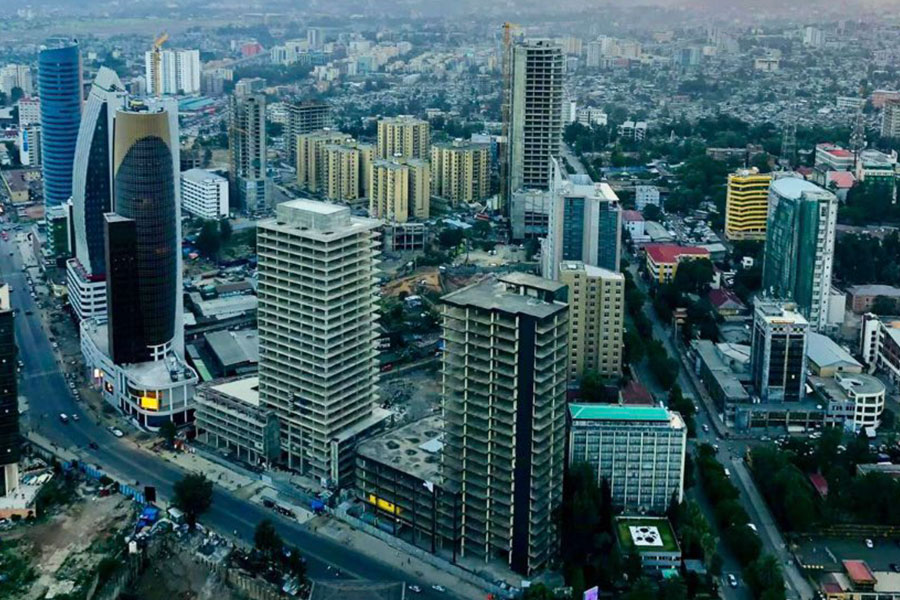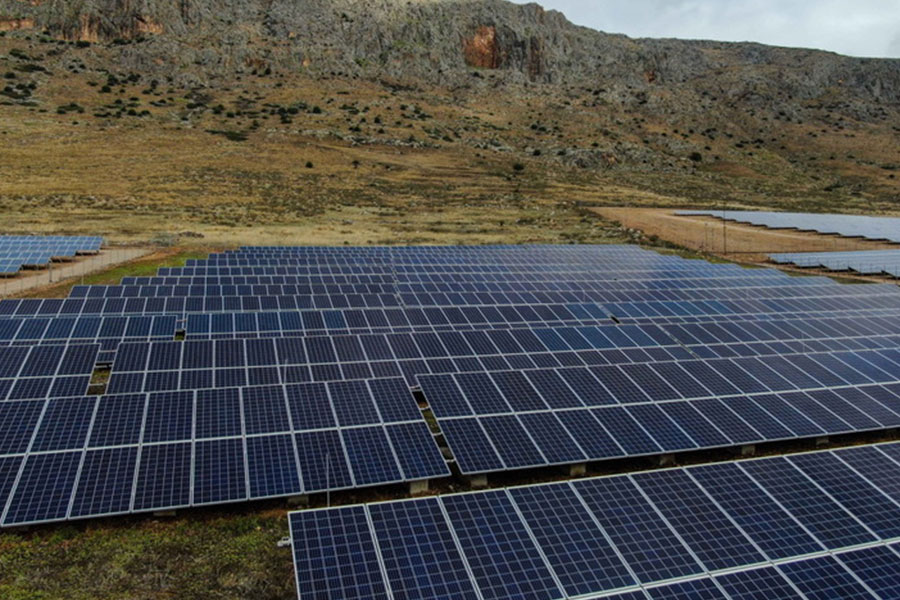
Radar | Oct 02,2021
Mar 25 , 2023
By Stephen S. Roach
No two crises are alike. That is true of recent financial upheavals – the Asian financial crisis of the late 1990s, the dot-com crisis of 2000, and the global financial crisis of 2008-09. It is also the case with crises sparked by geostrategic shocks, such as wars, pestilence, famine, and pandemics.
Today, we are witnessing a potentially lethal interplay between these two sources of upheaval: a financial crisis, reflected in the failure of Silicon Valley Bank, and a geostrategic crisis, reflected in the deepening cold war between the United States and China. While the origins of each crisis are different, in one sense, it does not matter: The outcome of their interaction is likely greater than the sum of the parts.
The failure of SVB is symptomatic of a far bigger problem: a US financial system that is woefully unprepared for the return of inflation and the concomitant normalization of monetary policy. SVB risk managers were in deep denial of such an outcome. The bank was brought down by sharp losses on its unhedged 124 billion dollar bond portfolio, triggering a classic bank run by fearful depositors.
Depositors, even the hotshots of America’s startup culture, can hardly be blamed for not doing the due diligence on complex financial institutions they entrust with their assets. Sadly, that task falls to the Federal Reserve, which blew it again. Starting with reckless monetary accommodation that perpetuated a dangerous string of asset bubbles – from dot-com and housing to credit and long-duration assets – and continuing with the misdiagnosis of post-COVID inflation as “transitory,” the Fed has now made a supervisory error of monumental proportions: It fixated on large banks and overlooked smaller regional banks like SVB, Signature and First Republic, where accidents were waiting to happen.
This is particularly disheartening in the aftermath of the post-2008 implementation of a new supervisory regime. “What if” stress tests for banks quickly became the gold standard for minimizing the risk of financial contagion. The first stress test in early 2009 effectively marked the trough of that crisis, because it revealed that newly capitalized major banks could withstand the worst-case blows of a sharp deepening of an already wrenching recession.
Over time, however, stress tests became an exercise in mindless repetition.
Big banks built ample cushions of financial capital that all but ruled out systemic failure in the event of a major recessionary shock. A string of Treasury Secretaries, Fed chairs, bank CEOs, and even presidents was unanimous in boasting of a US financial system that was in excellent shape. From time to time, the Fed would use the annual stress test as a warning to a few institutions to improve their risk-management practices or strengthen their capital adequacy. It largely worked like a charm – until now.
We should have seen the latest twist coming because the stress test suffered a major flaw: It had turned into an asymmetrical risk-assessment exercise, examining the performance of large systemically important banks in the event of "hypothetical severe recessions." The Fed staff modelled simulated impacts of sharp declines in global GDP, soaring unemployment, and plunging asset markets – shocks that were presumed to be accompanied by renewed disinflation (flirting with outright deflation) and falling interest rates.
Of course, this hypothetical shock – which the Fed calls a “supervisory severely adverse scenario” – is precisely the opposite of the interest-rate shock that hit SVB.
In its February 2023 stress test, the Fed conceded that it needed to think more broadly about different shocks. It allowed for the possibility of a new “exploratory market shock” – still a recession, albeit one accompanied by higher inflation. But, buried in a terse language near the end of the latest stress-test report, the Fed noted that any firm-specific exploratory results would not be available until June 2023. And there was no indication that such results would be published for smaller regional banks. Too little, too late.
What does this have to do with China and the escalating Sino-American conflict?
For the past 20 years, a group within the senior ranks of the Chinese leadership has argued that America is in a state of permanent decline, providing an opening for China’s global ascendancy. This view gained support in the aftermath of the US-made global financial crisis and most assuredly will gain even more support as the SVB crisis hits a new segment of the US financial system.
A rising China could hardly ask for more. At a time when the Western financial system is once again suffering from a self-inflicted impairment, the imagery of Russian President Vladimir Putin and Chinese President Xi Jinping embracing each other in the Kremlin as "dear friends" pretty much says it all. China apparently views a cold war and the carnage in Ukraine as a small price to pay to strengthen its push for geostrategic hegemony.
There is an important footnote to China’s view of a declining America. While Mao alluded to it broadly – a US “paper tiger . . . in the throes of its deathbed struggle” – this argument was first fully articulated by Wang Huning in his 1991 book "America Against America". Based on Wang’s firsthand observations while living in the US, the book was a scathing critique of America’s social, political, and economic decay.
Wang is hardly an innocent bystander to China’s new assertiveness. He was the chief ideological adviser to Xi Jinping’s two immediate predecessors, Jiang Zemin and Hu Jintao, and has played a similar role for Xi in the exposition of “Xi Jinping Thought” as China’s new ideological anchor. And Wang, one of only two holdovers who remained on the top seven-man leadership team (the Standing Committee of the Politburo), has also just been named Chairman of the Chinese People’s Political Consultative Conference. The demise of SVB only cements Wang’s stature.
In the end, it pays to ponder Chinese etymology. In Mandarin, wéijÄ« has the dual meaning of danger and opportunity. From SVB to Wang Huning, that is precisely the point of the increasingly worrisome interplay between another US-made financial shock and a sharply escalating Sino-American cold war. A rising China is taking dead aim at crisis-prone America.
PUBLISHED ON
Mar 25,2023 [ VOL
23 , NO
1195]


Radar | Oct 02,2021

Fortune News | Apr 20,2024

Radar | Jun 04,2022

Radar | Sep 18,2021

Viewpoints | Sep 14,2019

Commentaries | Jul 23,2022

Viewpoints | Apr 02,2022

Agenda | Aug 27,2022

Fortune News | Jul 10,2020

Fortune News | Oct 08,2022

My Opinion | 131499 Views | Aug 14,2021

My Opinion | 127855 Views | Aug 21,2021

My Opinion | 125833 Views | Sep 10,2021

My Opinion | 123463 Views | Aug 07,2021

Dec 22 , 2024 . By TIZITA SHEWAFERAW
Charged with transforming colossal state-owned enterprises into modern and competitiv...

Aug 18 , 2024 . By AKSAH ITALO
Although predictable Yonas Zerihun's job in the ride-hailing service is not immune to...

Jul 28 , 2024 . By TIZITA SHEWAFERAW
Unhabitual, perhaps too many, Samuel Gebreyohannes, 38, used to occasionally enjoy a couple of beers at breakfast. However, he recently swit...

Jul 13 , 2024 . By AKSAH ITALO
Investors who rely on tractors, trucks, and field vehicles for commuting, transporting commodities, and f...

Jun 28 , 2025
Meseret Damtie, the assertive auditor general, has never been shy about naming names...

Jun 21 , 2025
A well-worn adage says, “Budget is not destiny, but it is direction.” Examining t...

Jun 14 , 2025
Yet again, the Horn of Africa is bracing for trouble. A region already frayed by wars...

Jun 7 , 2025
Few promises shine brighter in Addis Abeba than the pledge of a roof for every family...

Jun 29 , 2025
Addis Abeba's first rains have coincided with a sweeping rise in private school tuition, prompting the city's education...

Jun 29 , 2025 . By BEZAWIT HULUAGER
Central Bank Governor Mamo Mihretu claimed a bold reconfiguration of monetary policy...

Jun 29 , 2025 . By BEZAWIT HULUAGER
The federal government is betting on a sweeping overhaul of the driver licensing regi...

Jun 29 , 2025 . By NAHOM AYELE
Gadaa Bank has listed 1.2 million shares on the Ethiopian Securities Exchange (ESX),...